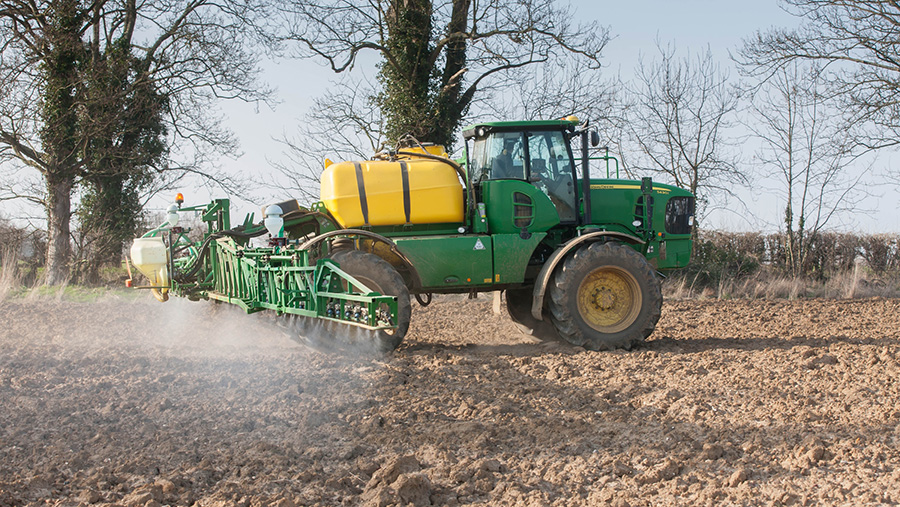MEPs offer stay of execution for glyphosate
 © Tim Scrivener
© Tim Scrivener Popular herbicide glyphosate is likely to have its licence extended, following a crucial vote in the European parliament today (Wednesday).
Doubts about its future have been raised in recent weeks, following conflicting advice on its possible carcinogenicity.
With the European Food Safety Authority (EFSA) saying it was safe, but the World Health Organization linking it to cancer, political pressure to ban the substance has been mounting.
See also: EU scientists say glyphosate ‘unlikely’ to cause cancer
EU member state experts meeting earlier this year were split on the issue. And last month the European parliament’s environment committee passed a so-called “non-binding resolution” calling for the commission to halt the authorisation process.
But a meeting of the full European parliament in Strasbourg has taken a different tack. It has suggested that the EU commission should now renew the licence (which expires at the end of June), for another seven years, not the 15 years that was originally proposed.
It has also demanded an independent review of the overall toxicity of glyphosate, focused not just on its carcinogenicity, but also on possible endocrine-disruptive properties.
Delighted @Europarl_EN has seen sense and voted to extend the use of Glyphosate on farms @NFUtweets @NFUStweets pic.twitter.com/JhKZJUgARH
— Ian Duncan MEP (@IanDuncanMEP) April 13, 2016
And the non-binding resolution – which was passed by 374 votes to 225, with 102 abstentions – says glyphosate should be for professional uses only, and not used in parks and public playgrounds.
Finally, the MEPs have condemned the use of glyphosate for desiccating crops (like oilseed rape) prior to harvest.
Reaction
The European parliament vote has been welcomed by the NFU. “It’s fundamental that the agricultural sector is able to use glyphosate responsibly in order to produce healthy products across the sector entering the food chain, reduce our greenhouse gas emissions and continue to farm sustainably,” said NFU president Meurig Raymond.
Conservative MEP Julie Girling also welcomed the move, but expressed concern that questioning the scientific opinion of EFSA in this matter set a worrying precedent.
The next stage will be a meeting of member state experts scheduled for 18 May. The EU commission is likely to table a new proposal and the experts will vote on it.
If they are still split, then the commission will decide under its own jurisdiction.
Value of glyphosate
A recent report by ADAS, the UK’s largest agricultural consultancy, estimated a total ban on glyphosate would reduce UK production of winter wheat and winter barley by 12% and oilseed rape by 10%, costing the industry €633m a year.
The RSPB cites glyphosate as key to controlling bracken and rushes, while the chemical is widely used to control weeds on airport runways and railway lines.

